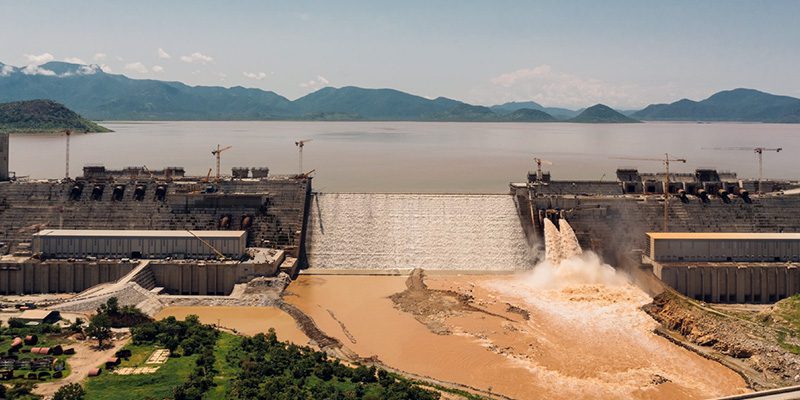Mekelle፡Telaviv, Nairobi, Pretoria, London, (Tigray Herald).
GERD and the New Pan-African Awakening: Ethiopia’s Vision for a Self-Reliant Continent
In a powerful address delivered at the ARDA Policy Talk Series hosted by Ethiopia’s Foreign Affairs Institute, Chief Government Whip Tesfaye Beljige issued a stirring call to rejuvenate Pan-Africanism, positioning the Grand Ethiopian Renaissance Dam (GERD) as a symbol of continental pride and self-determination.
More than a feat of engineering, GERD has emerged as a political and cultural statement a declaration that Africa is ready to shape its own future. “The dam is not merely an infrastructure project,” said Tesfaye. “It is a testament to Africa’s capacity for self-sufficient development and regional solidarity. It stands as a defiant answer to centuries of externally imposed dependency.”
The chief whip’s remarks come at a time when Pan-Africanism, once a cornerstone of post-colonial liberation movements, faces both new relevance and new challenges. Tesfaye argued that the ideological backbone of Pan-Africanism must now evolve into actionable frameworks for economic integration, cultural reclamation, and political unity goals the continent has yet to fully realize, despite the historic establishment of the Organization of African Unity (OAU) in 1963 and its successor, the African Union (AU).
“Pan-Africanism has always been a counterforce to white supremacy and colonial hegemony,” Tesfaye noted. “It must now become a proactive strategy to redefine our place in the global order.”
For Ethiopia, Pan-Africanism is not an abstraction. It is woven into the nation’s historical legacy from Emperor Menelik II’s crushing defeat of Italian imperial forces at Adwa in 1896 to Addis Ababa’s present-day role as the diplomatic capital of Africa. Tesfaye emphasized that the spirit of Adwa continues to inspire a generation eager to push back against neocolonial dynamics.
That resistance, however, must be matched by institutional transformation. Tesfaye urged African states to embrace bold reforms, mobilize indigenous knowledge systems, and foster intellectual sovereignty. He called for educational curricula across the continent to be reoriented around Pan-African values, and for regional economic blocs to act not just as trade mechanisms, but as engines of collective ambition.
At the heart of his address was a critical point: that African unity cannot be achieved through symbolism alone. It demands a strategic shift a re-imagining of what African development should look like, grounded in historical consciousness and pragmatic collaboration. “We need to integrate Pan-African ideals into tangible policies,” Tesfaye said, “from classrooms to parliaments, from river basins to boardrooms.”
In that regard, GERD is both metaphor and model. Financed largely by Ethiopians themselves, the dam has sparked hope and debate across the continent. To many Africans, it signals what is possible when development is driven not by donors or extractive contracts, but by local will and shared purpose.
As Ethiopia fills the GERD’s reservoirs, the rest of Africa watches not just the rise of a dam, but the return of a political philosophy. One that believes the continent can and must craft its own narrative.
With his speech, Chief Whip Tesfaye Beljige has reignited a conversation long overdue. If Africa is to face its 21st-century crises with coherence and strength, it must revisit its Pan-African past not to repeat it, but to reimagine it.
Source፡ENA




